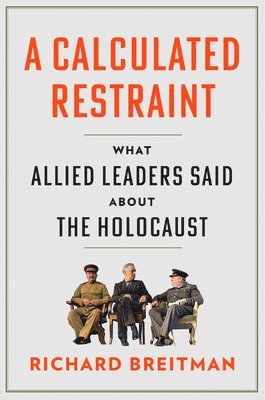Kommande

419:-
An eminent historian of the Holocaust examines why Churchill, Roosevelt, and Stalin, though faced with mounting evidence of the Nazi extermination of Jews, were reluctant to speak out against the atrocities. The Allied leaders rarely spoke directly about the Holocaust in public. When Churchill and Stalin alluded to Nazi mass murder of civilians in early speeches, they said much less than they knew. Not until December 1942 did Allied governments issue a joint statement about Nazi Germanys policy of exterminating the Jews of Europe. Roosevelt deferred his own public statement until March 1944. Why didnt these leaders speak up sooner? Through close readings of public and private statements, Richard Breitman pieces together the competing motivations that drove each leaders response to the atrocities. All three knew that their reactions would be politically sensitive, as Nazi propagandists frequently alleged that the Allies were fighting on behalf of Jews, and that Jews were the puppet masters behind their governments. At a time of globally prevalent antisemitism, these calumnies had force. After the German invasion of the USSR, moreover, Stalin clearly wanted to focus on the threat to the Soviet state and people. At the same time, Churchill and Roosevelt realized that complete silence would prompt accusations of willful blindness. They usually finessed this dilemma by denouncing Nazi atrocities in general, prioritizing wartime constraints over moral considerations. Timely and incisive, A Calculated Restraint sheds new light on the relationship between World War II and the Holocaust. Ultimately, the Allied leaders responses cannot be reduced to a matter of character. What they saidand chose not to sayabout the Holocaust must be understood in light of the political and military exigencies that drove their decision-making.
- Illustratör: 2 Karten
- Format: Inbunden
- ISBN: 9780674293649
- Språk: Engelska
- Antal sidor: 352
- Utgivningsdatum: 2025-05-06
- Förlag: Harvard University Press

